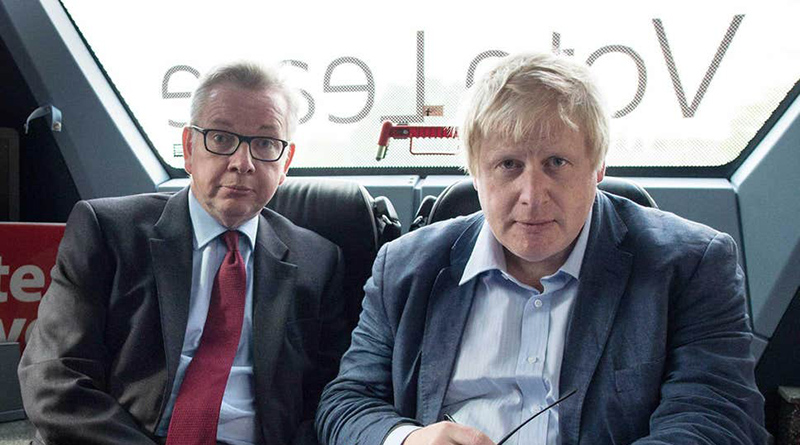Coke is it in the Tory party leadership contest.
As the contest for the leadership of the Conservative party (and in effect, however temporary, the prime ministership of the United Kingdom) began in earnest earlier this week it was interesting to note the demeanour of front running candidate, Michael Gove.
At his campaign launch on Monday the Environment secretary appeared visibly tired and lacklustre in approach, no doubt shaken from the reaction to his recent admission in the Daily Mail that when working a journalist 20 years previously he had on a number of occasions taken cocaine, the illegal class A drug.
Quite why Gove chose such a pivotal moment in his career to admit to such obviously controversial behaviour has since become the subject of much discussion. The most likely reason for his revelation is that it was an act of damage limitation- the news of past indiscretions was about to break anyway given that the Mail is serialising Owen Bennet’s new biography of the MP. In time honoured tabloid tradition, The Mail offered him the chance to put his version of the story out there first. That Gove’s wife, Sarah Vine, is one of the newspapers star columnist is perhaps of no relevance at all.
What has happened since the revelations, though, has provided some insight into the relationship between press and politicians. No outlets, or journalists, have been particularly sympathetic toward Gove. Indeed, as the story broke the major newspapers lustily proclaimed his unsuitability for the task ahead. “Michael Gove drugs shock: How Gove is now ‘unbackable’ in Tory leadership race” reported the Daily Express whilst the Daily Mirror of June 10th emblazoned its front page with “GOVE THE COCAINE HYPOCRITE MUST QUIT”.
As the Mirror headline suggests, for some it was Gove’s perceived hypocrisy that was the problem, not the actual fact that he had taken cocaine. After all, wasn’t Gove the man who, as the Daily Telegraph pointed out, introduced new regulations on lifetime bans for teachers convicted of drugs offences during his time as education secretary? In the Guardian Caroline Lucas, the Green MP for Brighton Pavilion, was reported as saying :
“I couldn’t care less about what a politician did in private 20 years ago. What I can’t stand is the rank hypocrisy of potential prime ministers ‘owning up’ to drug use while backing policies that threaten those using drugs now with prison and allows criminal gangs to profit.”
So as Gove’s star wanes, Boris Johnson’s is in the ascendency and it appears ever more likely that he will be chosen as party leader by sitting Tory MP’s and the grass roots membership. The former Foreign Secretary has been uncharacteristically quiet over the past few days. Though his campaign launch was lively enough, the usually predictable bon homie and studied dishevelment has been largely conspicuous by its absence. What we saw at the launch, in the six questions allowed from the press, was a refusal to directly answer any question posed. A failure to engage with any of the controversies that have characterised his entire career. When Sky News Beth Rigby posited that he had “brought shame on your party when you described veiled Muslim women as letterboxes and bank robbers” Johnson responded, to applause from his audience:
I think it’s vital for us as politicians to remember that one of the reasons that the public feels alienated now from us all as a breed, is because too often they feel that we are muffling and veiling our language, not speaking as we find – covering everything up in bureaucratic platitudes, when what they want to hear is what we genuinely think.
In the one in depth interview he has given thus far (to the Sunday Times) he stated that he was not only the best person to deliver Brexit but also the best to face the challenge of Jeremy Corbyn. This was soon followed by the announcement in the Daily Telegraph (for whom Johnson writes a weekly column for a reported £275,000 a year) that as Prime Minister he would increase the point at which people start paying the higher rate of income tax from £50,000 to £80,000. Which, as Sky News’ political correspondent Lewis Goodall noted, with the median income in the UK at £28,500 would represent the biggest tax cut for the richest people in a generation.
This was met with predictable outrage by those on the left wing of the political spectrum. On Twitter Labour MP Jess Phillips, wrote: “I honestly don’t know how you could look at the options of how to spend billions and think “Don’t worry those who earn £52k higher than the average salary in the UK, I’ve got your back.”
Which is all well and good, but as I’m sure Phillips is aware, Johnson is not interested in reaching out to the electorate as a whole. He is, however riskily, playing the short game and appealing to precisely the sorts of people who may bring in these sums and are of use to him – those on the Tory benches and in membership groups. More than this, as recent research by Tim Bale and Paul Webb has indicated, Johnson supporters within the Party are overwhelmingly on the right wing and for a “no deal” Brexit. He is, in Trumpian terms, playing to his “base”.
And as is the case with Trump, while scandal and controversy may be Johnson’s constant bedfellows, he has yet to be seriously damaged by any past indiscretions. As I’ve written before the media as a whole must share some responsibility for simply treating Johnson differently to how it treats other politicians. The easy willingness with which some sections of the press refer to him simply as “Boris” is important because the use of the forename carries with it the connotations of indulgence and familiarity which are usually afforded to an elderly relative who breaks wind at the dinner table. His track record suggests that he operates with the casual certainty of a privileged man who knows that whatever he says won’t be held against him. And even if he is criticised in some quarters, then that’s alright too because it all adds to a personal brand value. On Wednesday, Conservative MP Lynne Truss, the chief secretary to the Treasury, told Radio 4’s Today programme: I think it’s a sign – that he is being attacked shows the huge public appeal he has, the huge power he has to communicate.
Returning to the cocaine scandal, as Lewis Goodall has recently highlighted, Johnson has received none of the opprobrium which has headed Gove’s way. This is despite a 2008 admission of usage. As Goodall states: “I’m sorry can someone explain something to me: we know Gove took cocaine and he’s getting deep flak for it; we know Johnson did the same (and was mayor in charge of the Met, enforcing anti-drugs policies) but it seems to be no problem for him? Why? Because he told a joke about it?”
Also, in this leadership contest contest, Rory Stewart has admitted to smoking opium in Iran. Jeremy Hunt “thinks” he may have drunk a cannabis yoghurt drink whilst in India. Andrea Leadsom, Esther McVey, Dominic Raab and Matt Hancock have all admitted to smoking cannabis. And whilst it should be completely unremarkable that politicians with a great deal of life experience will have taken drugs at some point, what should be of note is that some of the people involved in the implementation of harsh drug laws have at one time or another used illicit substances.


